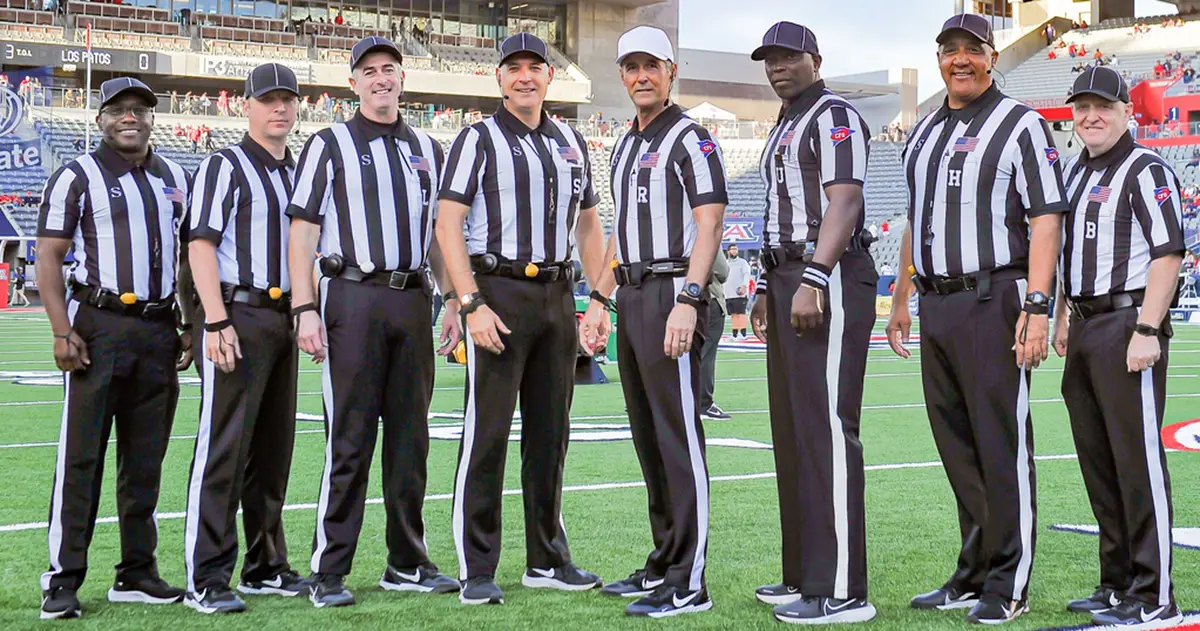Conferences are in charge of hiring, training, and assigning their referees to games. This is a dated approach that hasn’t changed in college football. It creates inconsistency among the conferences’ referees and leads to often inconsistent calls and drastically different ways of interpreting the same rules. Mr. FishDuck took some time away from his fun at stay casino 20 free spins to share his strong opinions about conference officiating.
As former Pac-12 members we know all too well how one week the Ducks could go through a game with only a few penalties and the next be bombarded with penalties for playing the same way. Beyond that, Pac-12 refs were notorious for calling something like Defensive Pass Interference on minimal or any contact. SEC and B1G refs tend to be more lenient and let players fight it out, and only flag for P.I. when it’s egregious — and even then, they may not.
When bowl season rolls around, especially for the playoff, referees are selected from a conference other than those to which both of the participating teams belong. That means both teams are dealing with refs enforcing the rules in a way they may not have seen throughout the year.
In the case of former Pac-12 teams accustomed to dealing with flag happy refs, suddenly playing a game where the refs let players get away with a lot of contact becomes a jarring experience and could cost them the game.

This is not pass interference in the Big Ten but certainly would be if this was the Pac-12 and Oregon did it.
(Photo From Fox Media)
Furthermore, when the refs work for the conference, at times it feels like the conference is protecting their highest-ranked teams or blue bloods. Perhaps the biggest beneficiary of this currently is Miami, where it feels like the ACC is doing all it can to protect its lone undefeated team.
Now, is that actually happening? We cannot know without being on the inside; however, if fans feel that way, it is certainly a problem for the conference’s referees.
If there was a centralized authority that managed referees, then fans may be upset by a blown call but it eliminates the feeling that the conference higher-ups may be working against your team.
Centralized Replays
Replays are central to football, for better or worse. They are often about getting calls right when so much is happening on the field. The on-field call is vital to how replays work, as it provides the baseline for how a penalty is called. Then replay officials look over the play using all the camera angles possible, and if there is irrefutable evidence, they change the call.
Some plays such as roughing the passer are nonreviewable and the call on the field always stands, but other penalties including targeting are reviewable. In the case of targeting, it must be reviewed in order to stand.
Targeting is already a problematic penalty, as it ranges greatly from each ref squad. So if there was a centralized replay authority, that perhaps has specialists who look at nothing but targeting penalties, it may actually be a step forward for player safety and it might be less about safety theater.
The targeting rule itself needs to be overhauled regardless, but when you have rules specialists on the television saying that a penalty is “textbook” targeting and an officiating crew ignoring it or saying there isn’t irrefutable evidence, it’s frustrating. There is a difference between the broadcasting rules analysts and ref crews, but they usually aren’t that far apart.

This play looked like targeting but was deemed not by the ACC refs.
(Photo From YouTube ESPN Media)
I do believe the rule needs to be overhauled, but having one authority that looks at targeting means that it would be called consistently, as every targeting call is followed by an official review to confirm it.
Additionally, some plays are basically impossible to review because no camera exists that can see what is going on. Minnesota’s third and fourth down game-winning runs against USC prove this, as it is just a mass of bodies and there is no way to see the ball.
In these cases we are completely dependent on the on-field call of the refs. Wouldn’t it be nice to know the refs are completely independent of conference affiliation?
Fans will always be upset with the refs; it’s just part of sports — but the sport should strive to be better in enforcing the rulebook. After all, there is one universal rulebook for college football, so there should be a single authority that manages referees.
David Marsh
Portland, Oregon
Top Photo By Joe Jackson Jr. Photography

Natalie Liebhaber, the FishDuck.com Volunteer Editor for this article, works in technology in SLC, Utah.
Share your thoughts about this team in the only free, “polite and respectful” Oregon Sports message board, the Our Beloved Ducks forum!

David Marsh is a high school social studies teacher in Portland, Oregon. As a teacher he is known for telling puns to his students who sometimes laugh out of sympathy, and being both eccentric about history and the Ducks.
David graduated from the University of Oregon in 2012 with Majors in: Medieval Studies, Religious Studies, and Geography. David began following Ducks Football after being in a car accident in 2012; finding football something new and exciting to learn about during this difficult time in his life. Now, he cannot see life without Oregon football.

